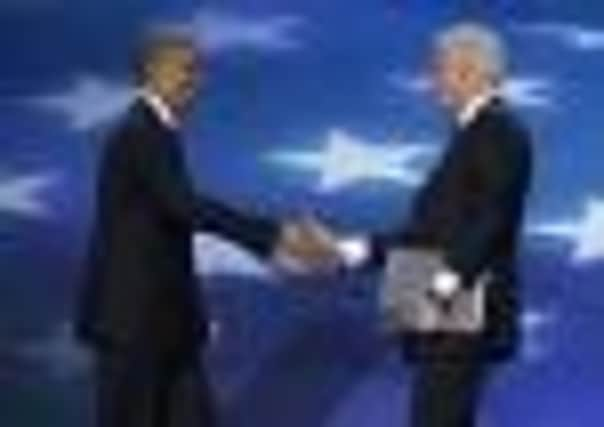Leaders: Economy is key to US election


Dwindling party membership in Britain protects us from such spectacles on any scale, but in America the Republican and Democratic conventions are huge political circuses. Now, with the two party conventions over, we are in the electoral endgame that will terminate on 6 November with either the re-election of Barack Obama or his replacement by Mitt Romney. That result matters almost as much to the rest of the world as it does to America.
The fallout from the American economy has global consequences, as we experienced in 2008. It was significant that President Obama and his party, at their convention, preferred to discuss a whole raft of issues, including foreign policy, rather than focus on the economy, whereas the Republicans talked of little else. Last Friday’s US jobs figures showed unemployment down from 8.3 to 8.1 per cent, but these headline figures mostly reflected the fact that many Americans have given up looking for work; only 96,000 jobs were created last month and the rate is down from last year. The incumbent in presidential elections traditionally enjoys an advantage, but in times of recession he can incur odium too. With the rival candidates so close in the polls it is fruitless to speculate on the winner; but no president since the 1930s has been re-elected with unemployment levels so high, nor with an approval rating of less than 50 per cent (Obama is on 45 per cent).
Advertisement
Hide AdAdvertisement
Hide AdShould we care who wins? Yes, if we can disentangle what each contender’s policies mean for us. Romney’s convention speech devoted just one paragraph to foreign policy. Combined with the obvious need for America to retrench on spending, some people might read isolationism into that reticence. Barack Obama gave Britain a walk-on part in his speech, accusing his rival of insulting America’s “closest ally” with his remarks about the Olympics. So he did – and that does not bode well for a Romney presidency – but coming from the president who sent back Churchill’s bust and is supporting Argentina’s claim to the Falklands it is hardly convincing. President Obama claimed: “We’ve blunted the Taleban’s momentum in Afghanistan, and in 2014, our longest war will be over.” Britain must make sure not to be caught out by an early US withdrawal from Afghanistan, regardless of which candidate wins.
More immediately, the US is Scotland’s biggest export market and the leading source of inward investment here. Scottish exports to America were £3.5bn in 2010. Scottish engagement in the US economy is promoted by Scottish Development International (SDI), an arm of Scottish Enterprise, through five offices in the US. There are 1,000 American companies sustaining employment in Scotland, including IBM, Raytheon and GE. The health of the American economy has a local as well as a global significance for Scotland. So the presidential candidate Scots will favour is the one with the better plan for recovery. On that there is as yet no clear consensus. President Obama favours stimulus spending, lower taxes on manufacturing and (long-term) increased taxes on the wealthy; Romney favours a cut in corporate taxation to 25 per cent and less business regulation, reduced personal taxation and a 5 per cent cut in government spending. Which programme Americans favour will only become clear in the early hours of 7 November.
No nonsense
Plenty of argument lies ahead, but it appears that both the pro-independence and pro-union sides are coalescing around support for a single Yes-No question on independence in two years’ time, enabling a clear choice to be offered on the country’s future. Once the debate begins, attention will focus, rightly, on what exactly a Yes vote will mean. But this cannot absolve the pro-Union side from also letting voters know what No means. David Cameron has spoken of more powers being “on the table”. But vague suggestions that jam may be along sometime tomorrow are likely to be greeted with scepticism by Scots voters – as the example of businessman Jim McColl, who last week said he was backing independence for the want of a “more powers” option – has shown.
The Lib Dems are to publish a report next month by Sir Menzies Campbell on a potential Home Rule road map for Scotland, a move which will help add clarity to the options being offered by the pro-Union side. Both Labour and the Conservatives now need to step up the pace and be clear about their own plans too. The independence referendum should be the moment when, finally, Scotland decides on the big question. But, as well as knowing more clearly what a Yes vote might bring, the voters also need to know that a No vote does not necessarily bring an end to the devolutionary process.